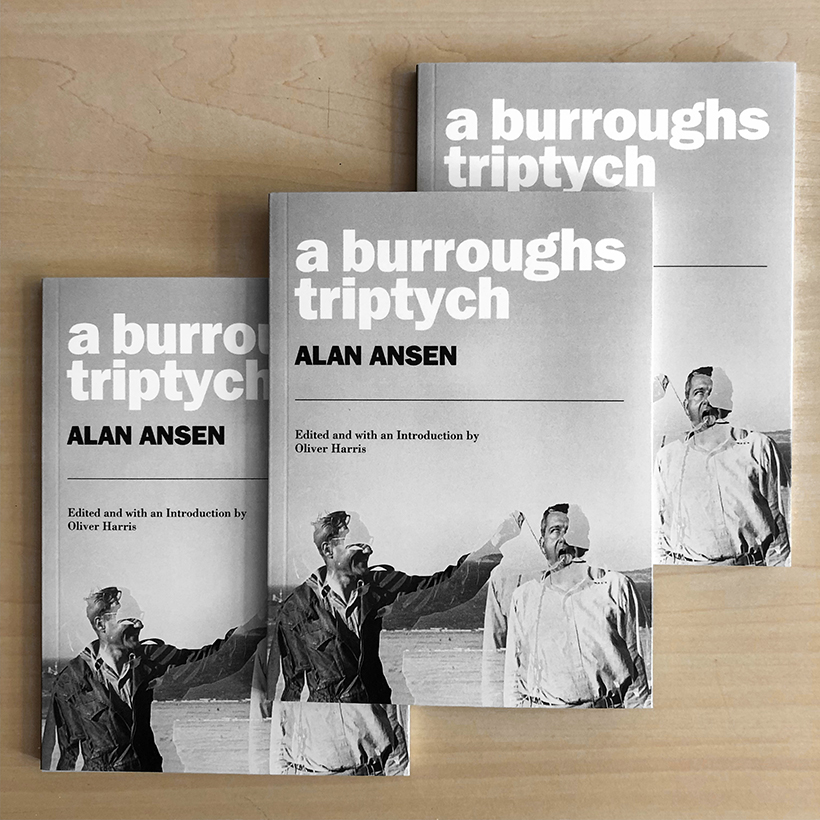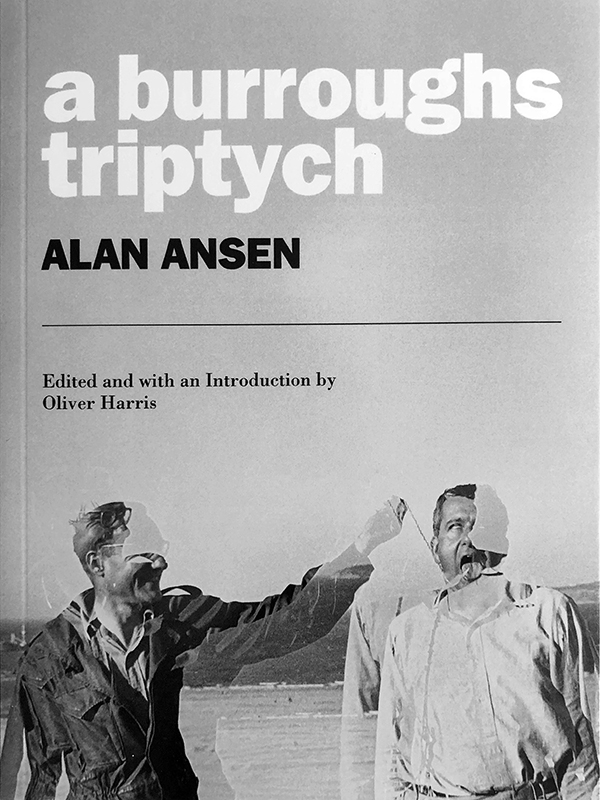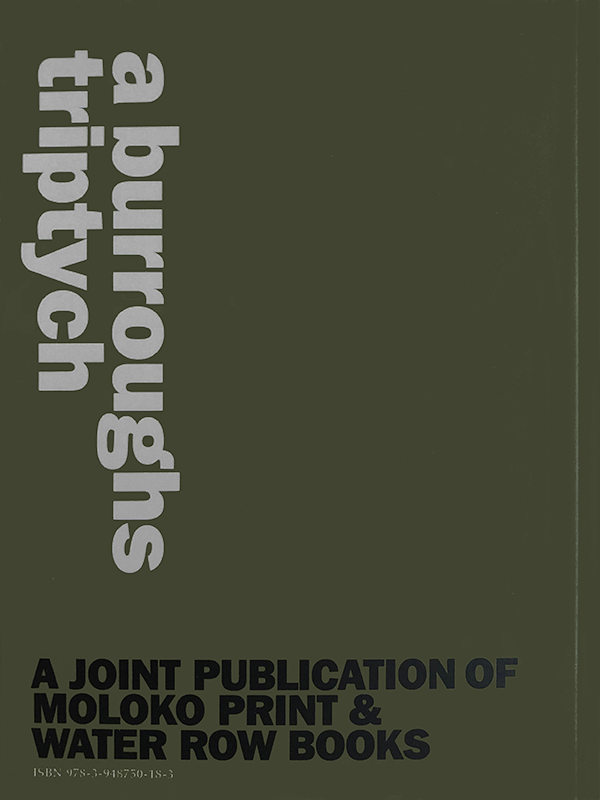When William Burroughs mailed Alan Ansen a copy of Naked Lunch on its publication in 1959, he dedicated it to “one of the few who understood Naked Lunch before I did”, testifying to the unique role Ansen played from the start of Burroughs’s career as collaborator, promoter, critic, friend and author of three essays written across three decades. A Burroughs Triptych pieces together for the first time the backstory to Ansen’s three essays which were previously edited into a composite volume in 1986, in order to do justice to the special part Ansen played in making the Burroughs legend. As editor Oliver Harris observes in the introduction: “For all his insights into Burroughs, Ansen’s vision had the seductive quality of one who has been seduced, as in the alluringly enigmatic portrait that is worth the entrance fee alone: ‘A tall ectomorph – in Tangier the boys called him ‘El Hombre invisible’ – his persona constituted by a magic triad of fedora, glasses and raincoat rather than by a face, his first presence is that of a con-man down on his luck”.
 Who was Alan Ansen? “There is a certain kind of ghost”, observes William Lee, the deadpan narrator of Burroughs’s debut novel Junky, “that can only materialize with the aid of a sheet or other piece of cloth to give it outline. Gains was like that. He materialized in someone else’s overcoat”. Alan Ansen is like that kind of ghost, haunting the margins of someone else’s biography and the footnotes of other writers’ literary histories.
Who was Alan Ansen? “There is a certain kind of ghost”, observes William Lee, the deadpan narrator of Burroughs’s debut novel Junky, “that can only materialize with the aid of a sheet or other piece of cloth to give it outline. Gains was like that. He materialized in someone else’s overcoat”. Alan Ansen is like that kind of ghost, haunting the margins of someone else’s biography and the footnotes of other writers’ literary histories.
Alan Ansen (1922-2006) was an American poet, essayinst and scholar. After serving as secretary to W.H. Auden in the late 1940s, he bacame a figure in the New York Beat scene, fictionalized in several works by Jack kerouac, as well as befreiending Ginsberg, Corso and Burroughs. In Tangier, Ansen played a crucial role organizing the manuscript later published as Naked Lunch, and wrote the very first critical study which appeared in Big Table magazine the same month that Burroughs’s landmark book came out. From the 1960s Ansen lived in Athens, publishing small editions of poetry while maintaining his links with Burroughs and Ginsberg. His selected poems Contact Highs were published in 1989.
Oliver Harris’ life as a Burroughsian began in 1984 with a PhD at Oxford that nobody would supervise. He has since gone on to publish and edit more than a dozen books about and by Burroughs, including William Burroughs and the Secret of Fascination and new editions of three trilogies: Junkie, Queer and The Yage Letters redux; Restored editions of Nova Express, The Soft Machine and The Ticket that exploded; and Minutes to go redux, The Exterminator redux and BATTLE INSTRUCTIONS – as well as Everything lost: the Latin American Notebook of William S. Burroughs, Blade Runner: A Movie and Dead Fingers talk: the restored Text. He is Professor of American Literature at Keele University, President of the European Beat Studies Network and the proud father of Ella, Mia, Nina and Vivi.


